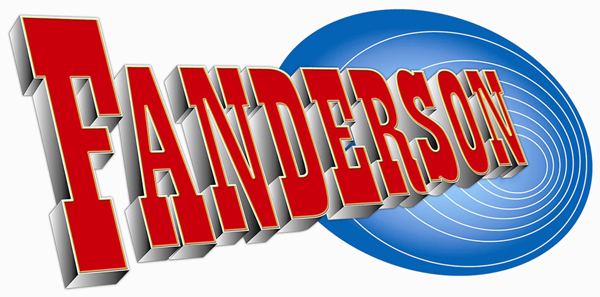Actor Harry Baird, who portrayed SHADO astronaut Mark Bradley in six episodes of Gerry Anderson’s UFO series, was born in Georgetown, Guyana, on 12th May 1931. He would probably have followed in his father’s footsteps and become a lawyer had it not been for a burning desire to travel the world and see what life was like overseas. Taking jobs as a merchant seaman, a longshoreman and even a ship’s dishwasher, he ended up in London and fell in love with the acting profession. He made his acting debut in 1955 as an exotic ‘attendant’ in the West End production of Kismet and took a small role as the wrestler Jamaica in Carol Reed’s A Kid For Two Farthings (1955).
Baird found that he was a much sought after figure for the popular jungle adventure movies of the time and he appeared as native warriors in such films as Killers Of Kilimanjaro (1959), Taur The Mighty (1960), Tarzan The Magnificent (1960) and Women Gladiators (1963). He was also seen in a regular role as Atimbu in ITC’s White Hunter series. Baird’s success in these parts was due to an impressive 6’ 1” physique which he had developed through his interests in judo, karate and motor-racing.
Not content to simply conform to racial stereotyping, he also took on more culturally significant roles in J. Lee Thompson’s Tiger Bay (1959) and Basil Dearden’s murder mystery Sapphire (1959). In the former he was the uncredited groom in the first black wedding depicted in a British film while in the latter he was Johnnie Fiddle, the former boyfriend of a murdered mixed-race girl – the eponymous Sapphire. A ground-breaking film which presented an unflinching examination of racism in late 1950s Britain, Sapphire won the 1959 British Academy Award for Best Film.
These roles encouraged Baird to take on more demanding dramatic parts and for the next decade he juggled appearances in stage productions such as The Blacks (Royal Court, 1961), A Wreath For Udomo (Lyric, Hammersmith, 1961) and Ogodiveleftthegason (Royal Court, 1967) with more lucrative work on television – in the BBC’s Hurricane series and three episodes of ITCs Danger Man (A Man To Be Trusted, Loyalty Always Pays and The Man On The Beach) – and in films such as The Road To Hong Kong (1961), Offbeat (1961), The Mark (1961), Flame In The Streets (1961), Station Six-Sahara (1962), The Small World Of Sammy Lee (1963), Traitor’s Gate (1964), He Who Rides A Tiger (1965), The Whisperers (1967) and The Story Of A Three-Day Pass (1967). The latter provided him with his most important film role: the lead as an American Gl stationed in France who has a relationship with a white French girl. The film itself made cinema history as the first feature to be directed by a black director – Melvin Van Peebles, now celebrated as the father of modern black cinema.
Following appearances as the gay wrestler Lillywhite in Robert Freeman’s The Touchables (1968) and as N’Galo in Gordon Hessler’s film adaptation of Edgar Allan Poe’s The Oblong Box (1969), Baird landed what were to become his two most popular and well known roles. In Peter Collinson’s The Italian Job (1969) he was bus driver Big William alongside his long-time friend Michael Caine, while television viewers saw him as Interceptor pilot Mark Bradley in UFO. Although primarily cast in UFO for his imposing physical presence, Baird turned in sensitive and memorable performances in episodes such as Computer Affair and Survival.
After UFO, he appeared in Ray Austin’s controversial 1000 Convicts And A Woman (1971) before travelling to Italy where he ended his career appearing in spaghetti westerns such as When The Devil Holds A Gun (1972), Trinity And Sartana Are Coming (1972) and Those Dirty Dogs (1974). His final screen role was as Bud in Four Gunmen Of The Apocalypse(1975). During this period, he became more involved in the production side of the film industry although his contributions in that field were relatively undistinguished,
Harry Baird died at Charing Cross Hospital, London on 13th February 2005, aged 73.
Originally published in FAB 52.
